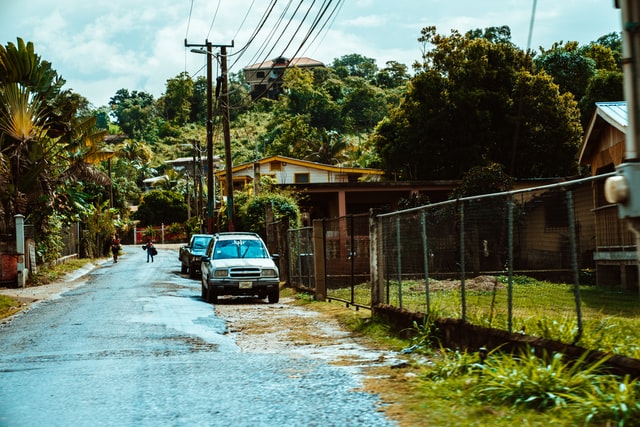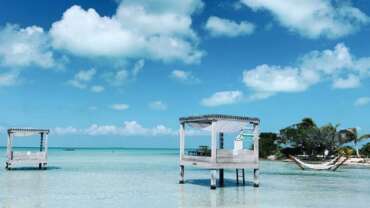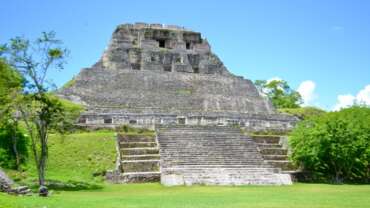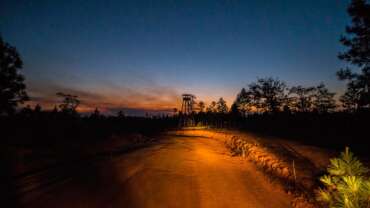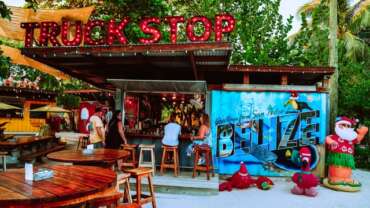Facts about Belize
Currency
Belize currency exchange is extremely easy for American visitors. The Belize dollar is locked at $2 Belize = $1 USD. So it’s very easy to see how much something is costing in USD when you go shopping. Most accommodations and tours are listed in US$ prices, and most restaurants, shops, etc. are listed in BZ$. Nearly everyplace readily accepts USD currency. Most also should accept traveler’s checks as long as you write your passport number or driver’s license number on the back. Large bills (anything above a $20) are a little more difficult to cash. Shopkeepers generally ask you to spend a minimum amount.
ATMs are also available across the country, particularly in most tourist destinations- including Placenica,Punta Gorda, Belmopan, Dangriga, Belize City, San Pedro Ambergris Caye, Caye Caulker, Orange Walk, San Ignacio and Corozal.
Geography
Belize is located in Central America and it is bordered to the north by Mexico, to the south and west by Guatemala and to the east by the Caribbean Sea. We are a diverse country with various cultures and languages. We also have the lowest population density in Central America with 35 people per square mile or 14 people per square kilometer.
Belize is also known for its extreme biodiversity and distinctive ecosystems. On the coast, there is a swampy coastal plain with mangrove swamps. In the south and interior there are hills and low mountains. Most of our land is undeveloped and is forested with hardwoods. It is a part of the Mesoamerican biodiversity hotspot and it has many jungles, wildlife reserves, a large variety of different species of flora and fauna and the largest cave system in Central America. Some species of Belize’s flora and fauna include the black orchid, the mahogany tree, the toucan and tapirs.
History
The first people to develop Belize were the Maya around 1500 B.C.E. As shown in archeological records, they established a number of settlements here. These include Caracol, Lamanai and Lubaantun. The first European contact with Belize occurred in 1502 when Christopher Columbus reached the area’s coast. In 1638, the first European settlement was established by England and for 150 years, many more English settlements were set up.
In 1840, Belize became a “Colony of British Honduras” and in 1862, it became a crown colony. For one hundred years after that, Belize was a representative government of England but in January 1964, full self government with a ministerial system was granted. In 1973, the region’s name was changed from British Honduras to Belize and on September 21, 1981, full independence was achieved.
Language
Come to Belize and you’ll hear familiar words of the English language. In fact, we are the only English language-speaking country in Central America. While English is the official language of Belize, Kriol is the language that we all speak.
When you hear us, you know you’re in a country unlike any other. Even our most up-tight citizens sound relaxed. We have a Caribbean lilt and our words seem a bit shorter. But don’t worry, you’ll understand everything and we may teach you a few phrases you don’t know.
Here, even our language is a diverse adventure. Spanish, African-based Garifuna, Maya-Kekchi, Maya Mopan, Mandarin, German are just a few of the languages that form the unique dialects we speak throughout the country.
Here are a few different ways you’ll hear “good morning”
“Gud Mawnin” – Kriol
“Buiti Binafi” – Garifuna
“Buenos dias” – Spanish
People
From the moment you arrive in Belize – whether you are an adventure traveler, part of a family trip or in the country for a relaxing beach vacation – Belize people and culture make you feel as welcome and comfortable, like nowhere you’ve ever visited.
In Belize, our traditions and customs are varied and represent more than eight diverse cultures. For generations, the people of Belize have demonstrated a cultural commitment to preserve the country’s unique charms. This enduring promise to the land, the waters and you, our visitor, inspires all to achieve a genuine and intimate connection to a variety of extraordinary experiences.
We are truly a melting pot of colorful personalities, making our 321,115 residents the country’s greatest resource for tourism. The Belizean people are made up of Maya, Mestizo, Kriol, Garifuna, East Indian, Mennonite, Arab and Chinese.
There also are a number of expatriates in Belize from Canada, Europe and the United States – and many of them retire here. A blending of cultures has resulted in one of the happiest and most peaceful countries in the region and a widespread reputation as one of the world’s friendliest tourist destination.
In Belize (formerly British Honduras), English remains the official language, but the most diverse language in Belize is Kriol (Belizean Creole). Other languages spoken include Garifuna, Mandarin, Spanish and Maya.
Weather
One of the nicest things about visiting Belize is the weather. With an average yearly temperature of 84° F (29°C), it’s always warm, yet comfortable. Costal sea breezes as well as our jungle and rainforests keep you cool even in the hottest summer months while winters can be cool but never very cold. In short, the climate is pretty much near perfect. Even in winter (November-March) the temperature in Belize rarely falls below 60°F (16°C), while the summer (May-September) is around 86°F (30°C). Humidity is also fairly consistent at around 85 percent.
Belize’s dry season is between February and May and has significantly lower rainfall than the rest of the year. When it does rain, it is usually in mild, short bursts.
June through December is our wet season, when parts of the country receive up to 150 inches of rain and the heavy, sometimes wild storms associated with the Caribbean occur, usually in the late afternoons. The most frequent rainfall usually happens in June or early July and is punctuated by a break in late July or August known as the “little dry.”
We also have a hurricane season, and while statistically Belize does not attract many major direct hits, it does get its share of severe tropical weather with high winds and rain. However, we have cooperative early warning network that we share with our neighbors. Our safety, evacuation and other procedures have proven to be effective, so no worries.
No matter what season you visit, there’s plenty to do and see down here.
Getting Around
Travelers can navigate the country by plane, bus, car, boat or horse, that’s right, horse. Below is a list of the many ways to discover our great country. We hope to see you soon.
Transportation includes local airlines, helicopter, rental cars, tour operators and buses that make getting around Belize easy. Remember to pack your sense of adventure, whether you’re headed to the beach, a dive site, Maya temples or any combination. Be ready for a journey.
For a small nation, we have a well-planned highway and road system that connects all mainland towns, villages and attractions. This system allows travelers to fashion a unique combination of experiences in one of the last unspoiled places on earth.
There are small airports in Belize centrally located around key points of interest in the country, bus terminals in most towns and boat services operating from all major coastal regions and island towns.
Travel via local airlines in passenger aircraft is the fastest and most popular means of transportation throughout Belize, especially for itineraries that combine different in-country locations. Flight schedules are coordinated with the arrival and departure of international flights, for even more convenient traveling and exploring.
Belize City and the Philip S.W. Goldson International Airport (PGIA) are hubs for most rental agencies, with localized services available in the larger tourism destinations.
Boats, known locally as water taxis, are the primary means of transportation between the islands and the mainland and, of course, to barrier reef attractions. Regularly scheduled water taxis operate between Belize City, Caye Caulker and San Pedro.



